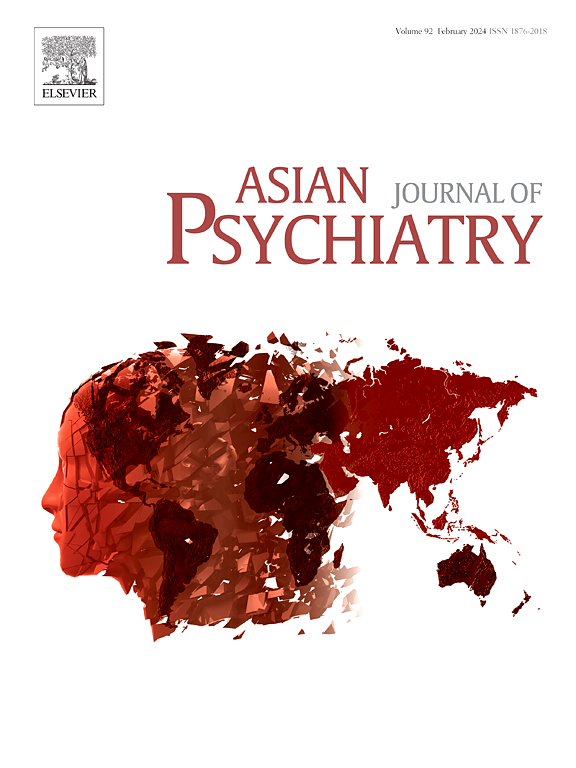Precision medicine for depression: Improving treatment response and remission
IF 4.5
4区 医学
Q1 PSYCHIATRY
引用次数: 0
Abstract
This review synthesises current knowledge to improve understanding of the pathophysiology of major depressive disorder (MDD) and optimise diagnostic, therapeutic and prognostic approaches. It examines the interplay between genetic, epigenetic, inflammatory, neurotransmitter and gut microbiome factors, together with environmental stressors and different clinical symptom presentations, in shaping MDD presentation and treatment response. Studies have revealed potential biomarkers predictive of treatment response, allowing differentiation of MDD subtypes and facilitating remission monitoring. While studies have identified potential biomarkers predictive of treatment response and enabling MDD subtype differentiation, significant challenges remain in achieving fully optimized therapeutic efficacy and widespread remission. A holistic, data-driven approach is key to addressing the complex aetiology of MDD, ultimately improving outcomes for patients and reducing the substantial burden of this prevalent disorder.
精准治疗抑郁症:改善治疗效果和缓解
这篇综述综合了目前的知识,以提高对重度抑郁症(MDD)病理生理学的理解,并优化诊断、治疗和预后方法。它研究了遗传、表观遗传、炎症、神经递质和肠道微生物组因素之间的相互作用,以及环境压力因素和不同的临床症状表现,在形成重度抑郁症的表现和治疗反应中。研究揭示了预测治疗反应的潜在生物标志物,允许区分MDD亚型并促进缓解监测。虽然研究已经确定了潜在的生物标志物,可以预测治疗反应并使MDD亚型分化,但在实现完全优化的治疗效果和广泛的缓解方面仍然存在重大挑战。一个整体的、数据驱动的方法是解决重度抑郁症复杂病因的关键,最终改善患者的预后,减轻这种流行疾病的沉重负担。
本文章由计算机程序翻译,如有差异,请以英文原文为准。
求助全文
约1分钟内获得全文
求助全文
来源期刊

Asian journal of psychiatry
Medicine-Psychiatry and Mental Health
CiteScore
12.70
自引率
5.30%
发文量
297
审稿时长
35 days
期刊介绍:
The Asian Journal of Psychiatry serves as a comprehensive resource for psychiatrists, mental health clinicians, neurologists, physicians, mental health students, and policymakers. Its goal is to facilitate the exchange of research findings and clinical practices between Asia and the global community. The journal focuses on psychiatric research relevant to Asia, covering preclinical, clinical, service system, and policy development topics. It also highlights the socio-cultural diversity of the region in relation to mental health.
 求助内容:
求助内容: 应助结果提醒方式:
应助结果提醒方式:


